Although only 45 mins away from Kyoto by train, Nara (奈良市) is often overlooked by time-pressed travellers but, as Japan’s first permanent capital with over 1300 years of history, it’s worth the short diversion. After a chilly trip to Kyoto back in March, I spent half a day exploring it on foot.
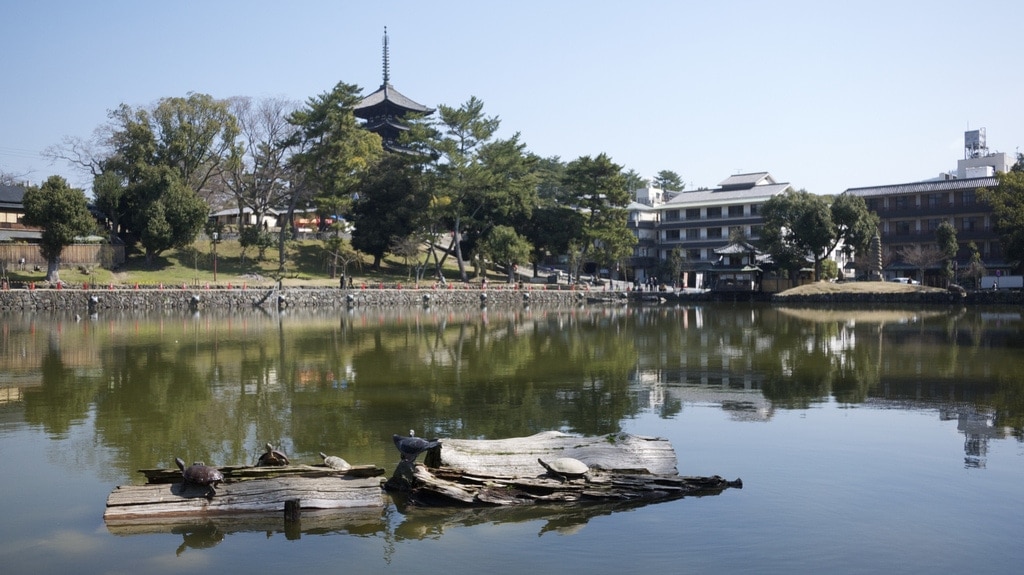
After arriving at Kintetsu Nara Station (近鉄奈良駅) I paid a quick visit to the adjacent tourist information office where a kindly old gentleman showed me a walking route which he assured me would avoid the tourist hordes. After giving me an origami figure of a deer I set off, first stopping to take in the view of Kōfuku-ji pagoda (興福寺) from Sarusawa Pond (猿沢の池).
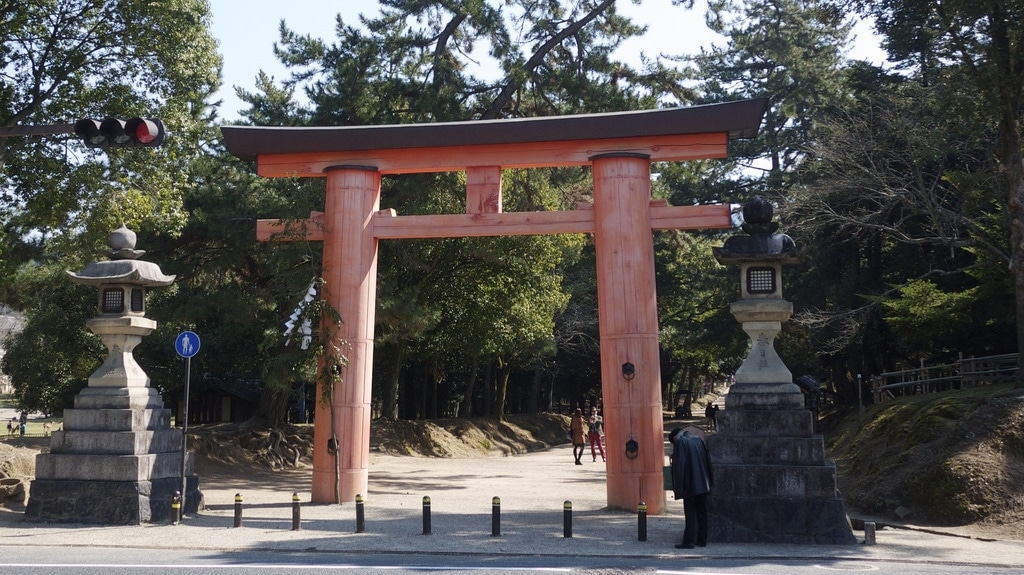
Most of the historical sites lie in and around the 500+ hectare Nara Park (奈良公園).
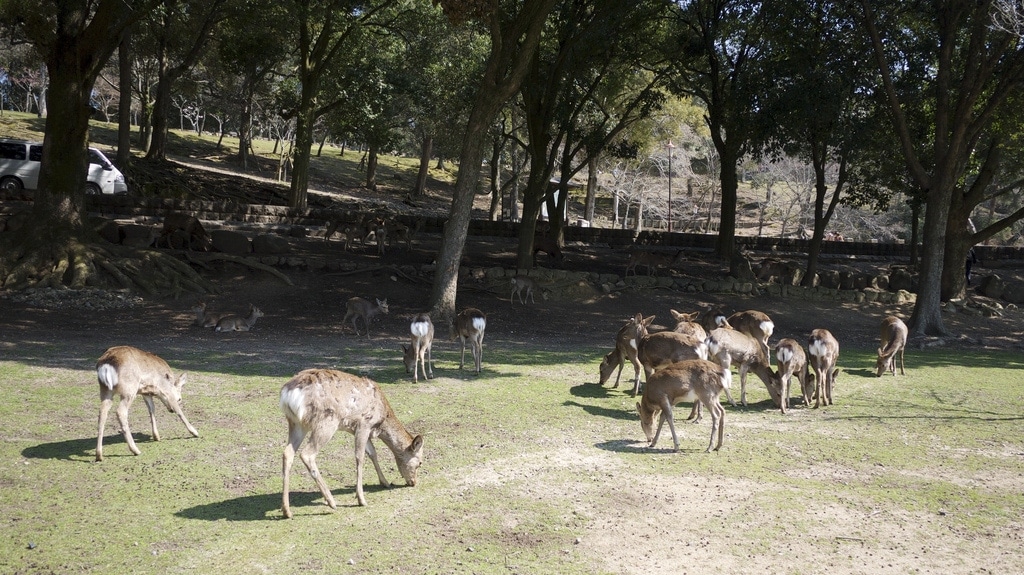
Once considered sacred messengers of the Shinto gods that inhabit the surrounding mountainous, the park is home to over 1,200 wild sika deer (シカ), who today freely roam around and are protected as national treasures. They’re particularly interested in visitors bearing tasty treats so watch out!
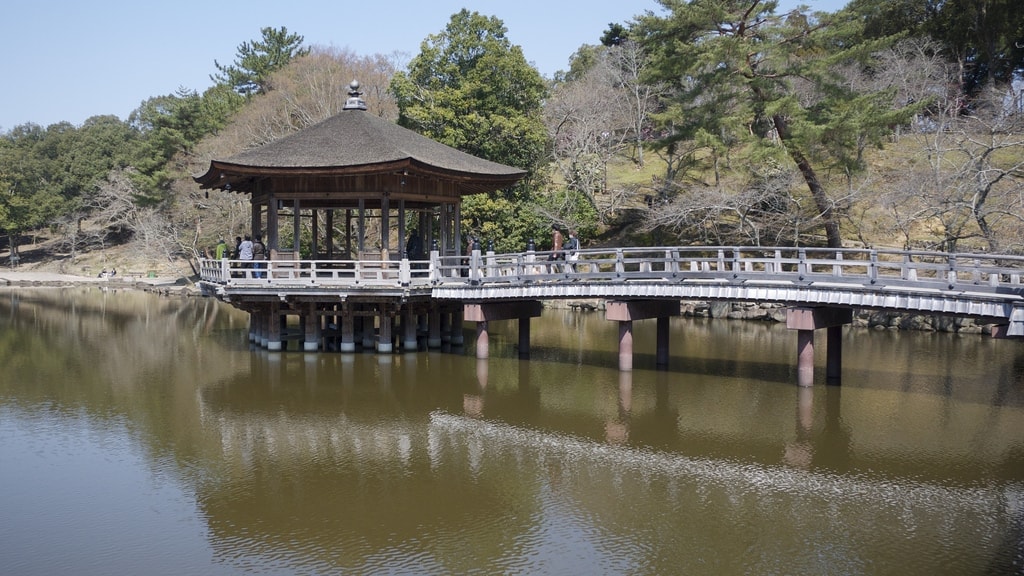
Above: Ukimido Gazebo on Sagiike Pond.
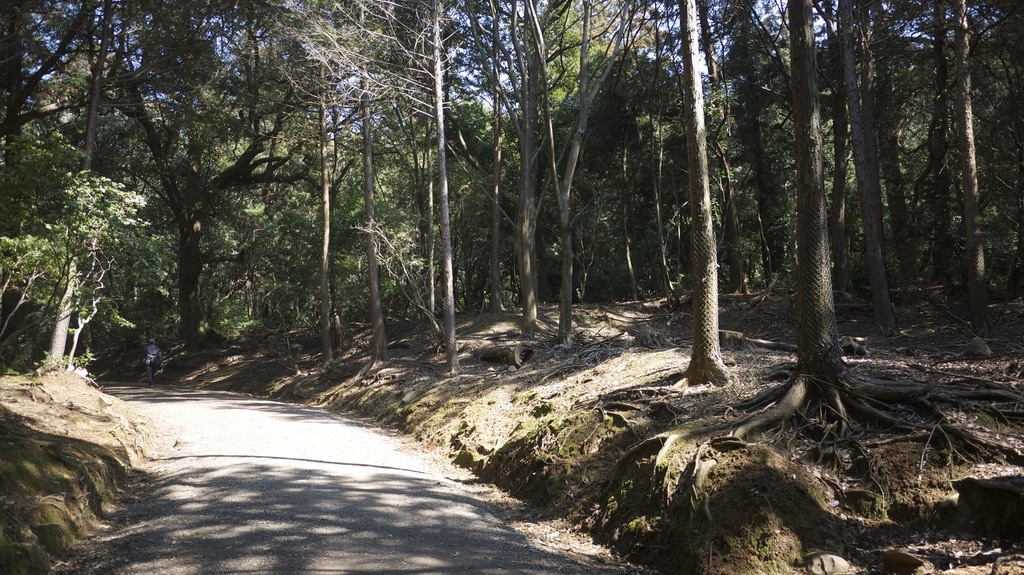
A short walk later I entered Kasuga-yama Hill Primeval Forest (春日山原生林), which as the name suggests is a beautiful area of undeveloped forest covered in cedars, firs and cypresses.
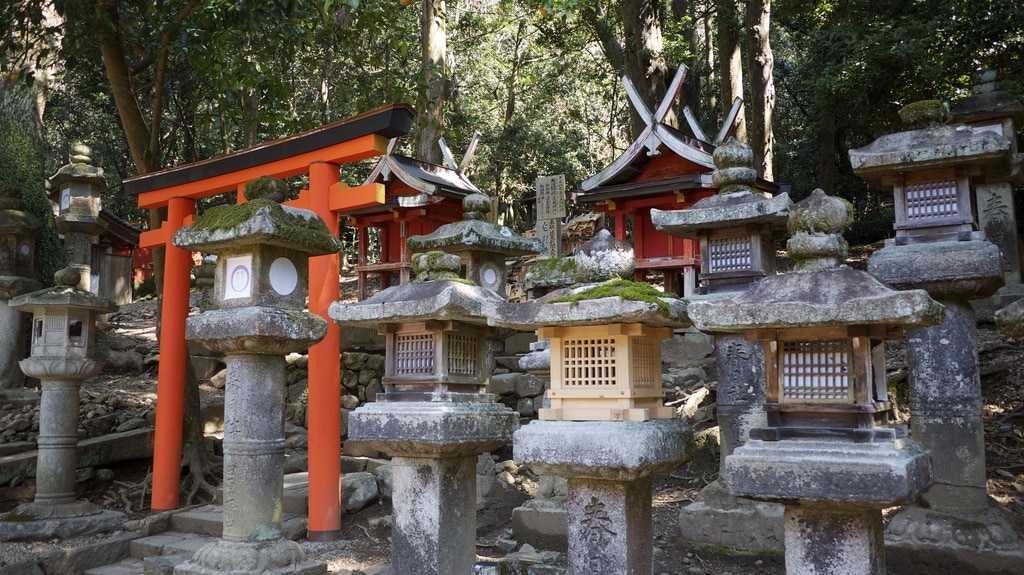
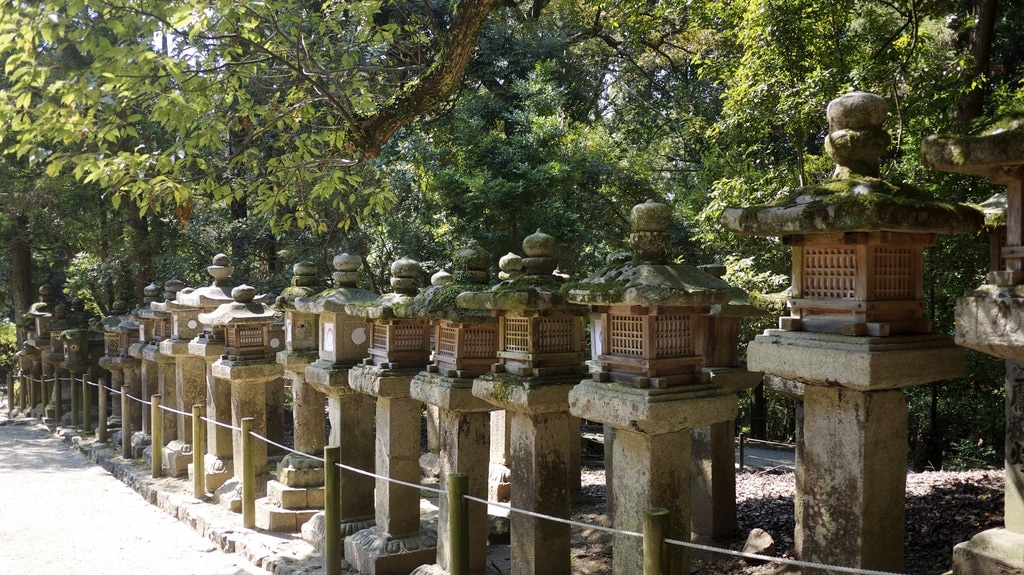
Further into the forest the path edge gives way to thousands of stone lanterns on the approach to Kasuga Taisha Shrine (春日大社).
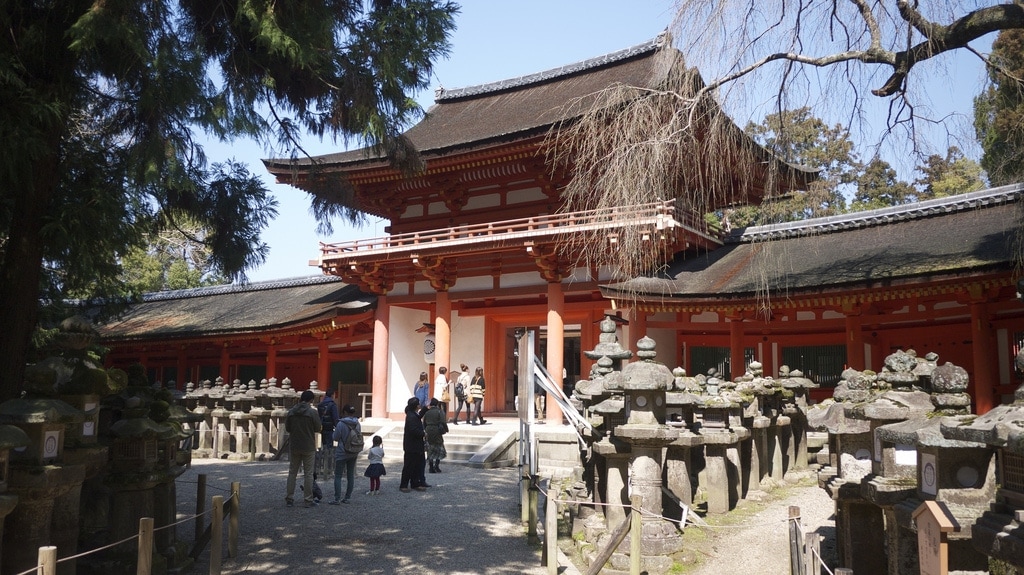
Kasuga Taisha Shrine is one of the most important in Nara and is dedicated to the deity responsible for the protection of the city. You can enter the outer area for free but have to pay for a closer look at the inner buildings.
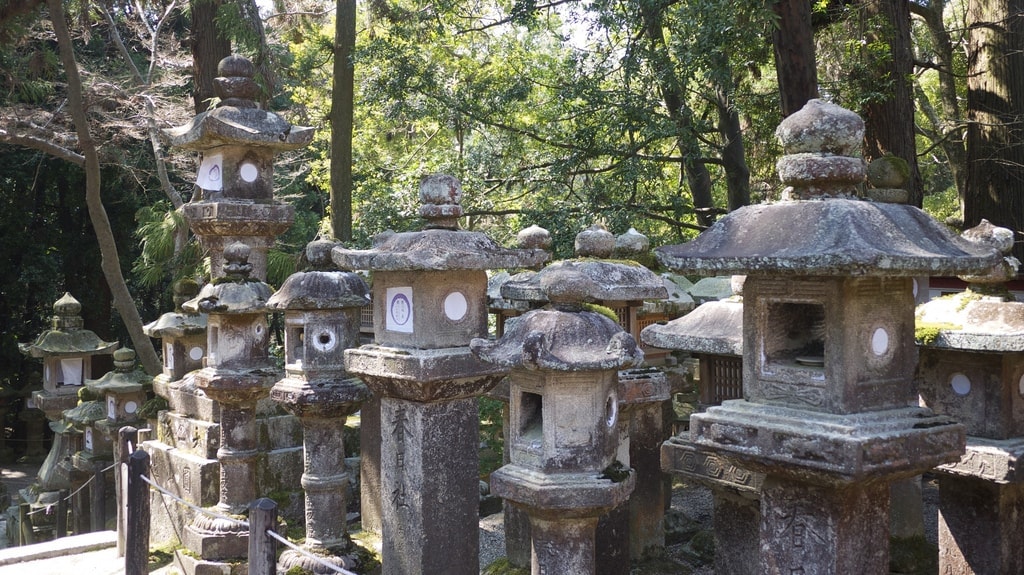
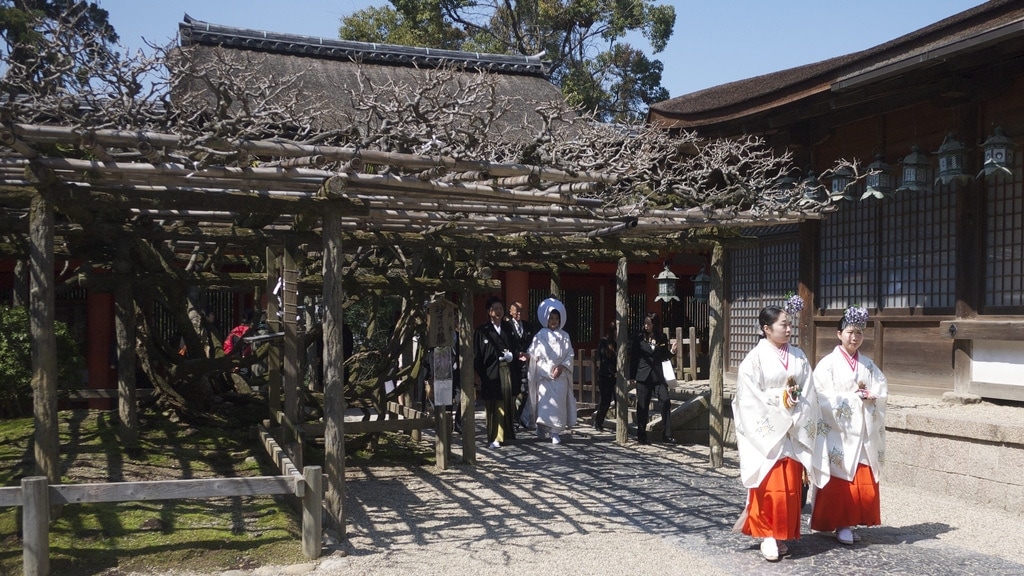
While I was there a traditional Shinto wedding was taking place.
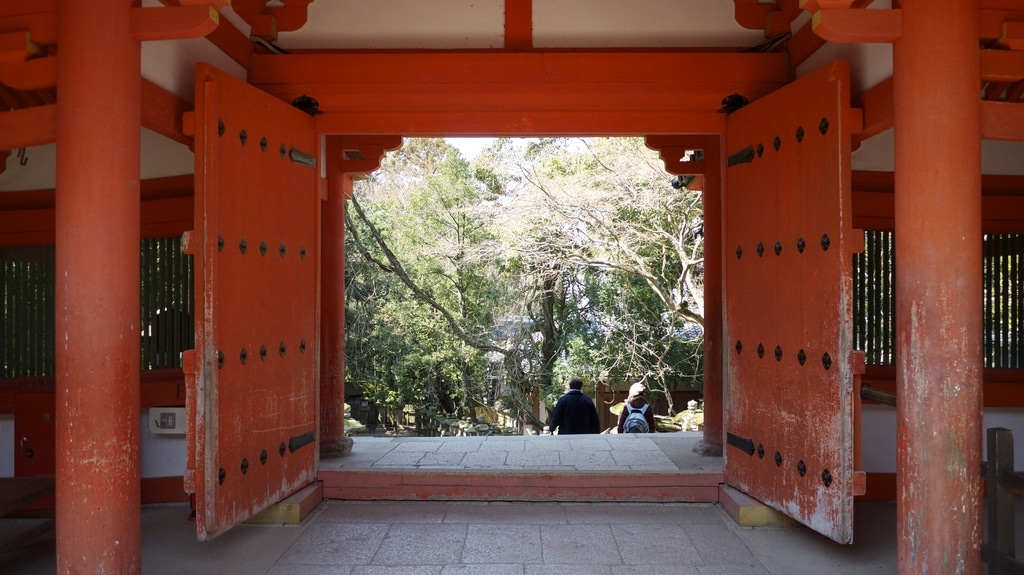
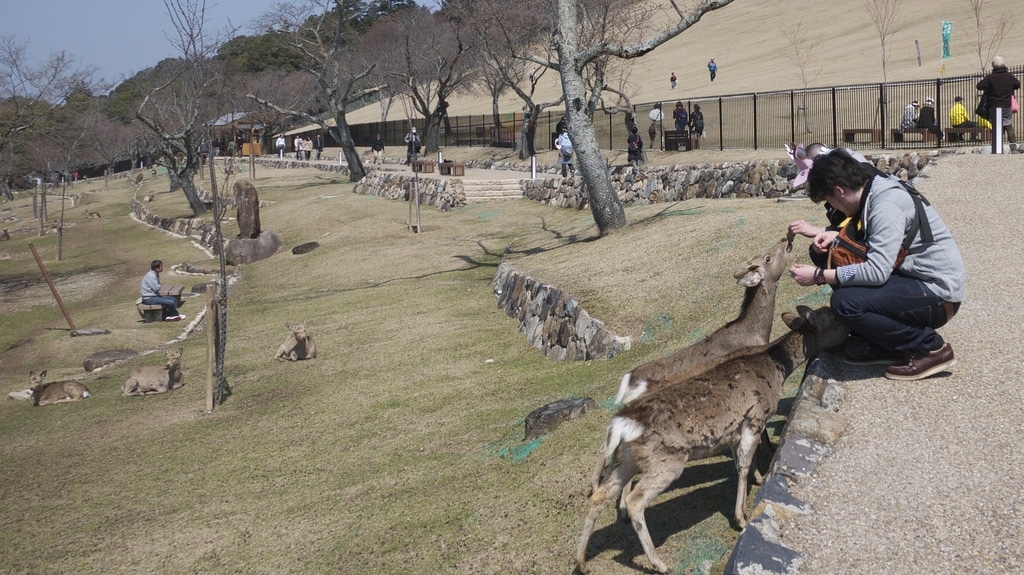
Above: Feeding Deer on Wakakusayama Hill.
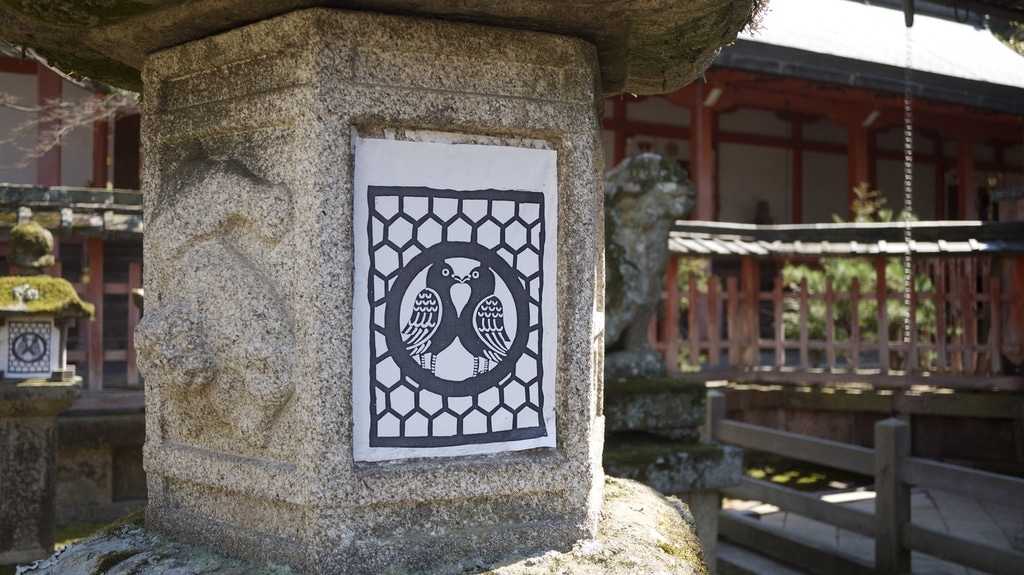
I noticed that many of the stone lanterns had paper windows fixed over their aperture, decorated with writing or illustrations. Presumably, this is used to stop the wind from extinguishing the naked flame, but if anyone knows better please leave a comment below.
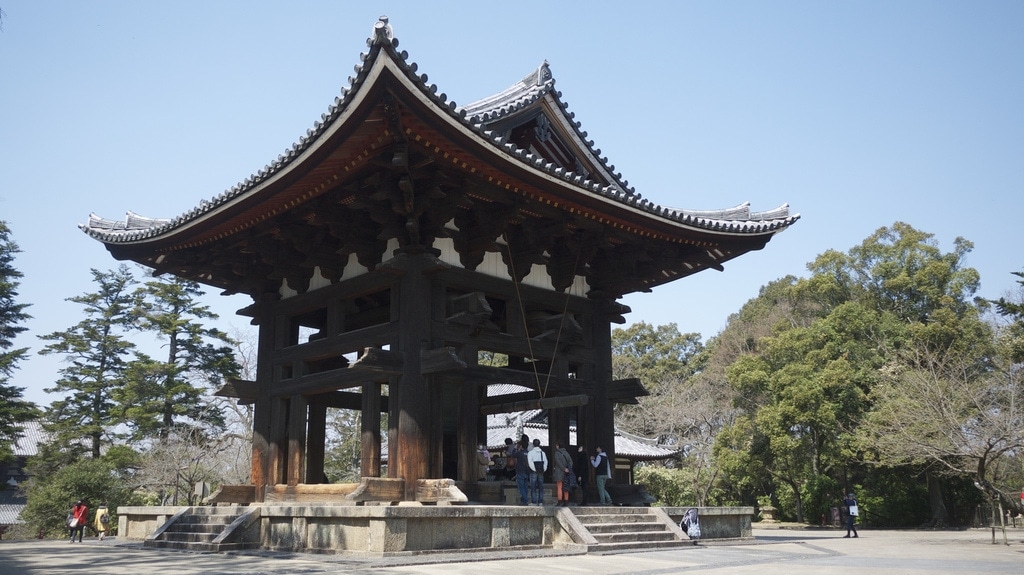
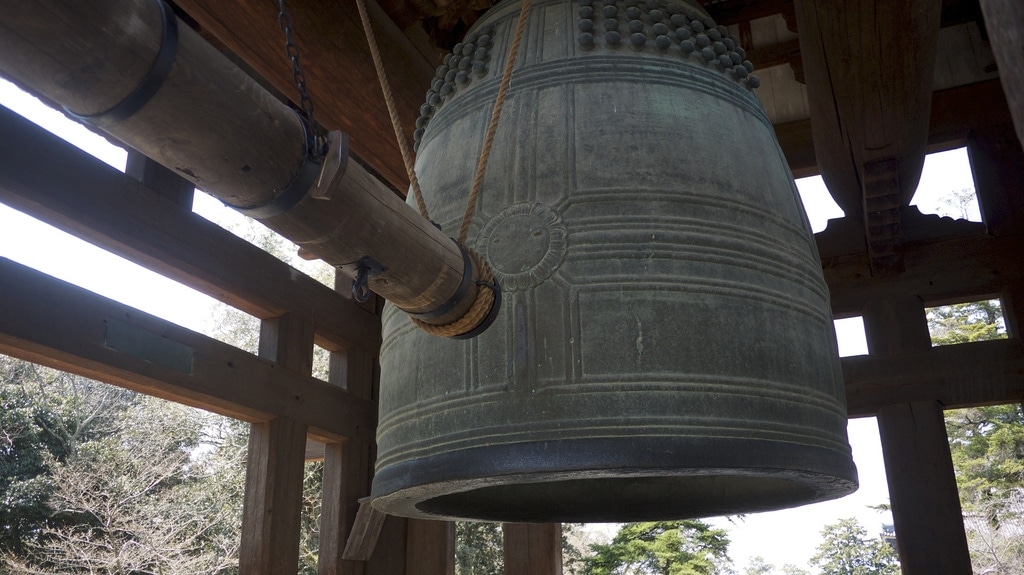
A little further on I came across the belfry of Tōdai-ji which contains an enormous 26-ton bell almost 4 m tall and 3 m wide.
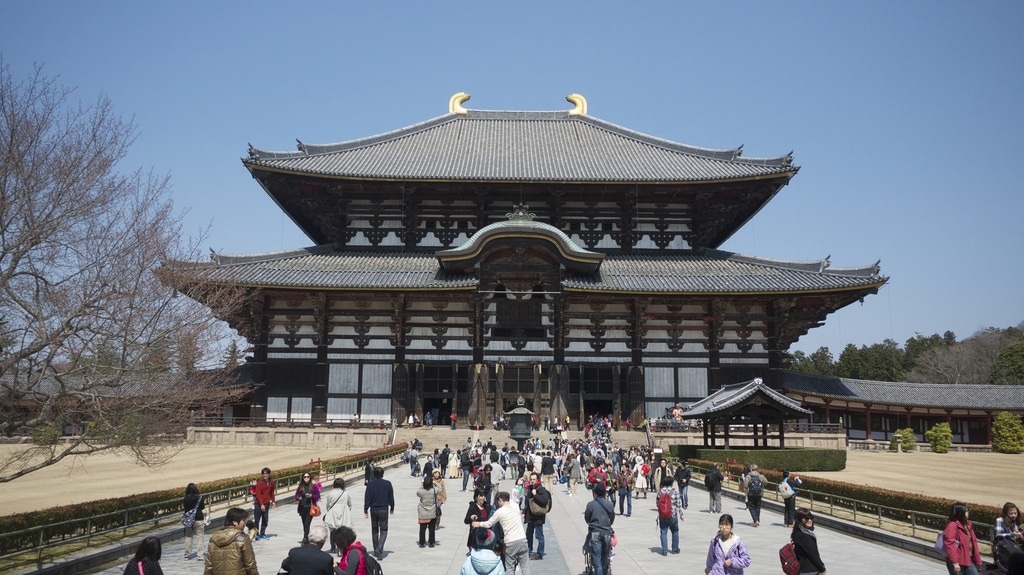
Below the belfry lies Tōdai-ji (東大寺), the biggest temple I’ve ever seen, and in fact is the world’s largest wooden building which houses the world’s largest bronze statue of the Buddha.
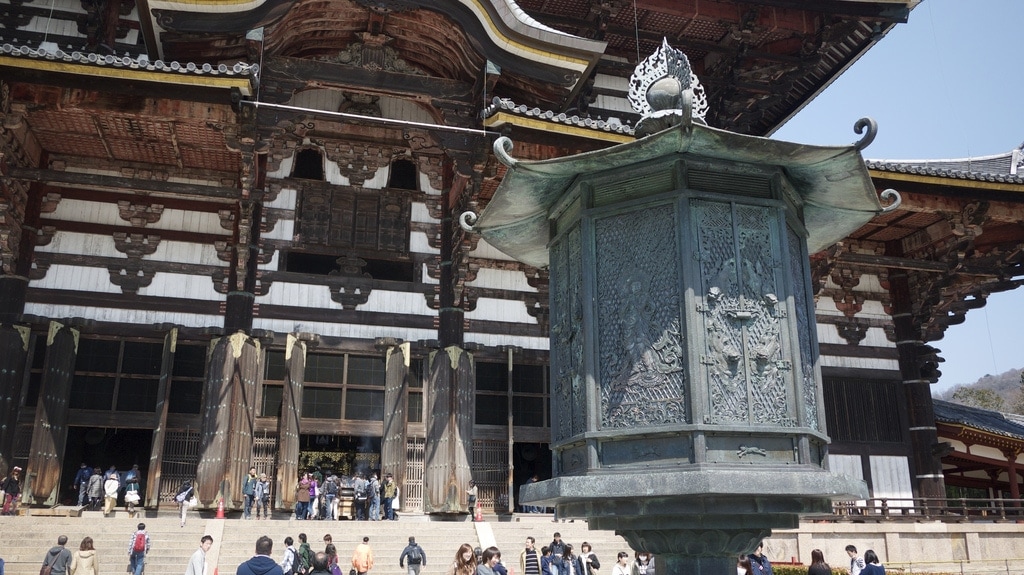
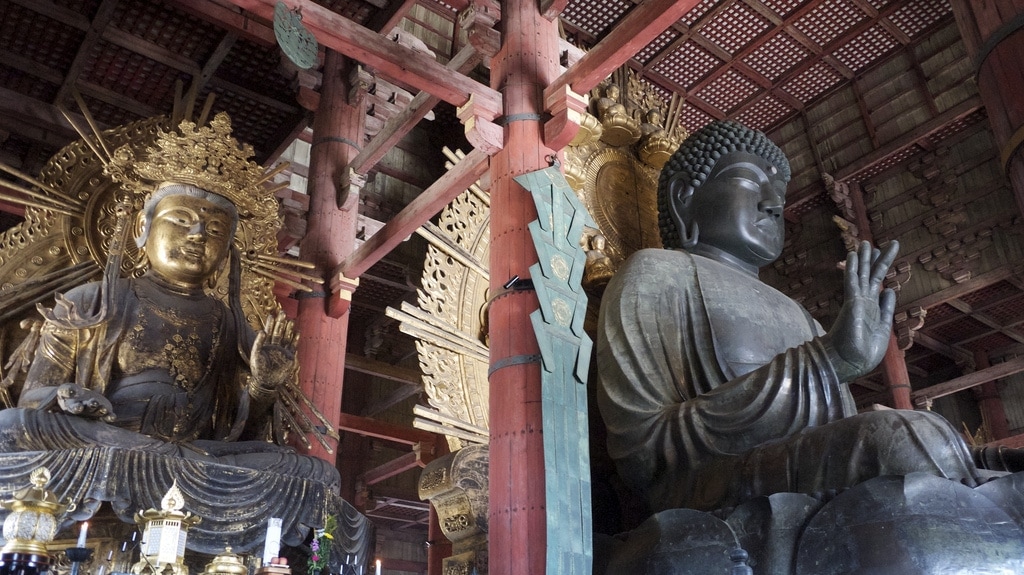
According to records, more than 2,600,000 people helped construct the Great Buddha and its Hall. The 16 m high statue was built over three years, the head and neck being cast together as a separate elements.
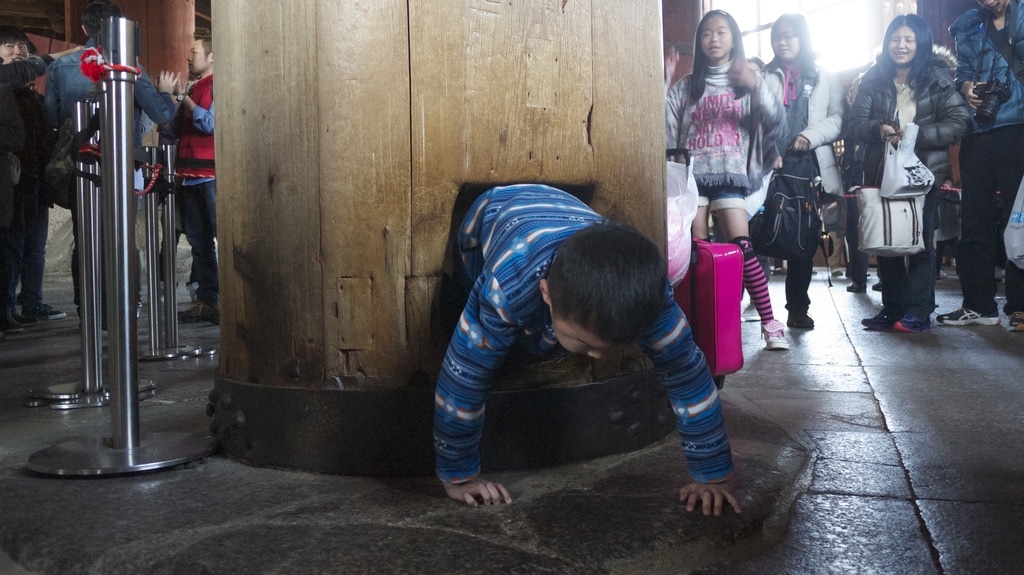
A curious attraction in one corner of the hall is a pillar with a hole in its base that is the same size as the Daibutsu’s nostril. Legend has it that those who can squeeze through this opening will be granted enlightenment in their next life. Plenty were queuing up for the pleasure.
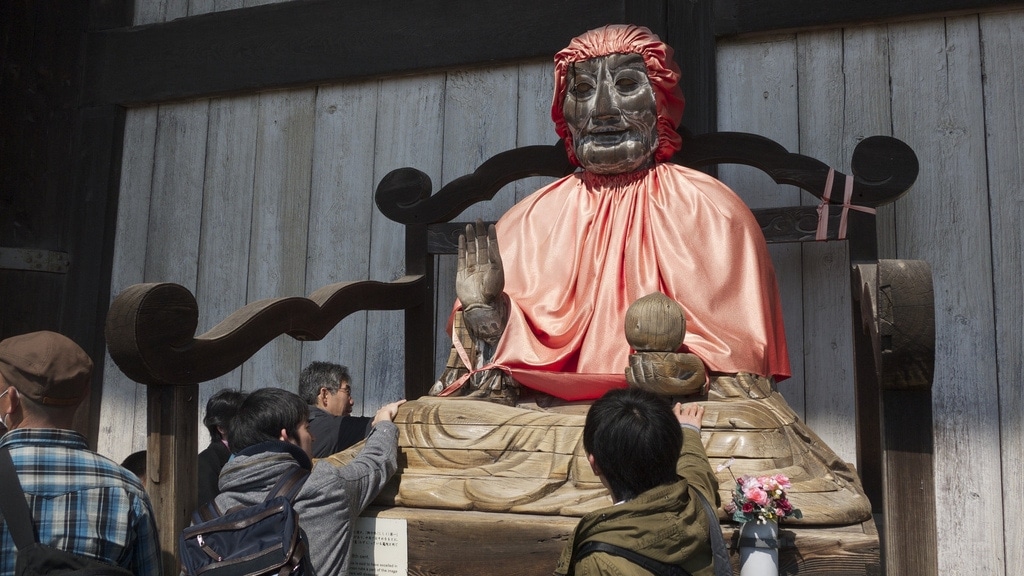
Outside the main hall is the ever-so-slightly creepy-looking wooden statue of Binzuru (賓頭盧 or Pindola) seated in the lotus position. Statues of him are usually well-worn since the faithful follow the custom of rubbing a part of the effigy corresponding to the sick parts of their bodies, as he is reputed to have the gift of healing. The red bib is worn as an offering to watch over the health of babies.
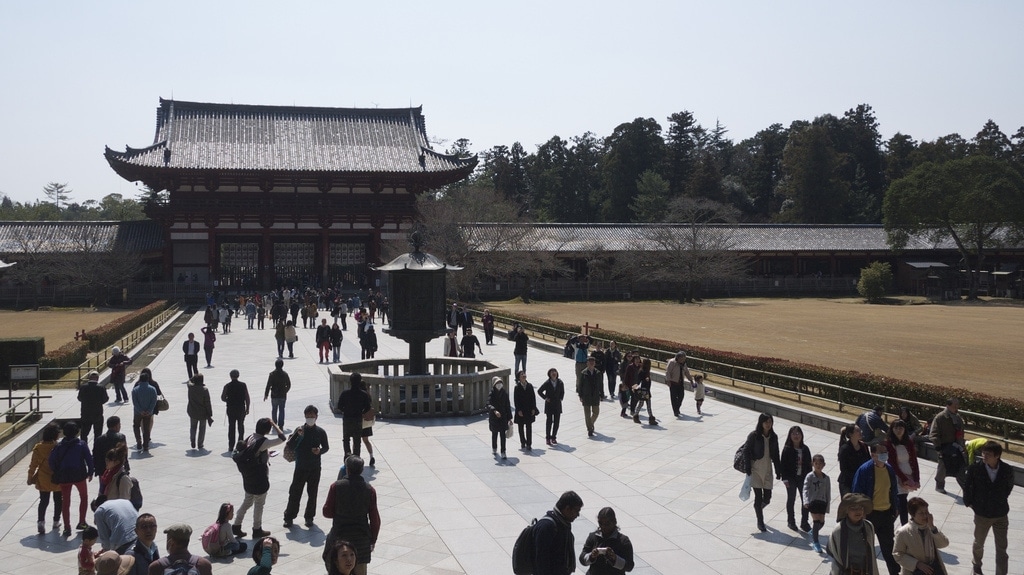
Overall Nara was a great day trip from Kyoto and well worth a visit if you can squeeze it in. Wikivoyage has lots more useful information about how to get there and the other things you can see/do.

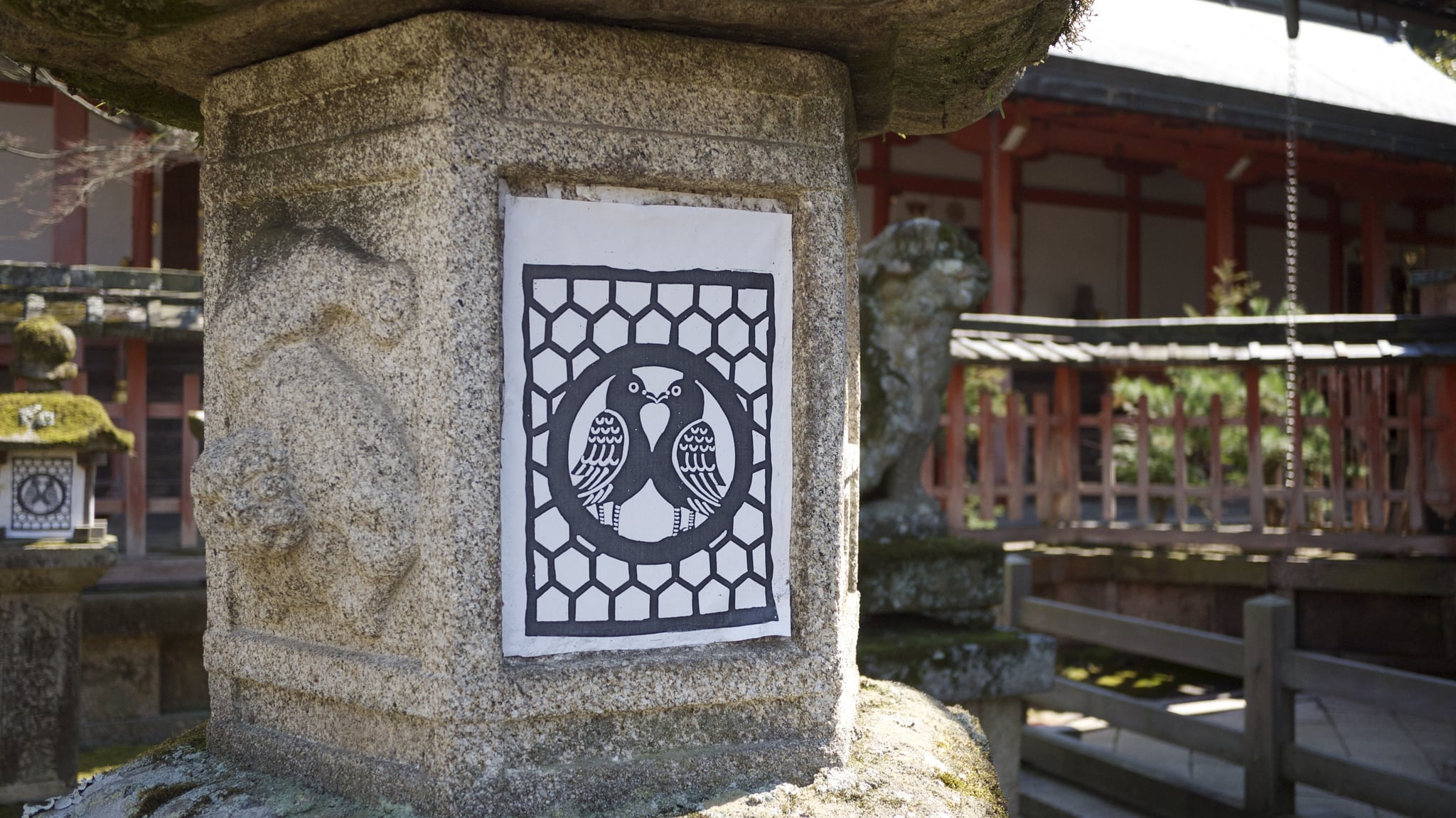
Reply